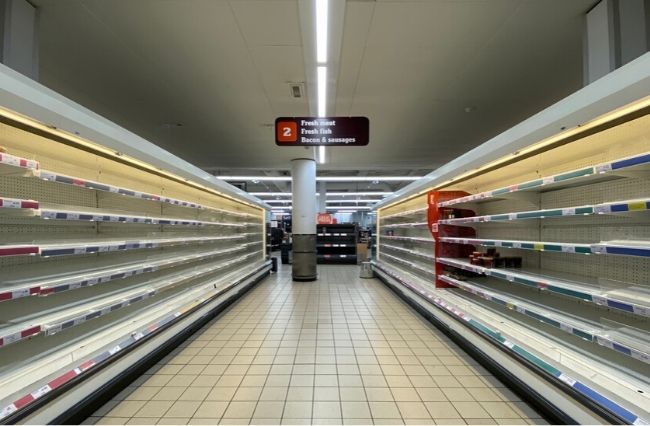In the past months Australia has encountered an outbreak of the coronavirus (COVID-19) which has infected many and caused deaths. And with the outbreak of the virus came an outbreak of panic and fear in people. The behaviour of Australians, which a month ago was viewed as irrational and overreactive, has become normal. A mass of people stockpiling essential household items, such as toilet paper and hand sanitiser. These have now become commodities.
So, what triggers this kind of panic and fear? Dr Matthew Marques, Lecturer in Social Psychology at La Trobe University, says that the unease is due to the uncertainty of the virus, as not much is known about it.
“Some people may respond with fear, as this is quite a natural reaction to uncertainty. It allows individuals to focus on an external threat,” he told upstart.
Dr Marques views the panic buying as a coping mechanism to help deal with the anxiety, which is associated with emergency outbreaks such as the coronavirus.
“Given that the current COVID-19 pandemic is developing, and new information comes to light around aspects such as its effects and mortality rate, some people respond in that way,” he said.
“This response can help deal with the generalised feeling of uncertainty, known as anxiety.”
According to Dr Marques, a major factor into why we get anxious during times of emergency is the fear of the unknown. Not knowing causes distress, because you cannot anticipate or expect what is about to come.
“Anxiety is a cognitive or emotional appraisal related to a perceived threat. If you know, or are familiar with someone or something, it is less likely to be processed as a threat, this is likely adaptive and has evolved over humanity,” he said.
“I guess if we hadn’t developed this sense, we wouldn’t have survived for very long.”
Acts of racism and xenophobia have become another unfortunate by-product of heightened anxiety. With reports of the virus flaring up in Wuhan back in December, and its subsequent spread through Asia, the media has reported acts of xenophobia towards Asian people. Professor of Georgia State University, Rosalind Chou, told The Guardian that, being Asian she is wary of how people will treat her.
“My fear is coughing in public, coughing while Asian, and the reaction other people will have,” she said.
Dr Marques says this sort of racism and prejudice is a coping mechanism.
“It is true that prejudice, or racism in this case, increases during times of uncertainty and threat,” he said.
“Recently we have seen how social media may amplify the fear of COVID-19 with humorous hashtags such as #toiletpapercrisis, but there are more pernicious narratives often spread in the guise of conspiracy theories.
“Research suggests that this conspiracy talk may be a way for people to cope with the uncertainty felt around the virus, however there is a lack of support to suggest that this helps individuals. These outbreaks of xenophobia are harmful towards the individuals targeted.”
According to Dr Marques, in order to manage anxiety, it is important to understand that it is normal to respond with anxiety, and that it is important to speak to the right people.
“Responses to potential pandemics such as COVID-19 vary from person to person. Understanding that being fearful and anxious, is a normal response to an uncertainty and threat may be helpful,” he said.
“Also, relying on social groups to stay connected is helpful. Finally, influencers on social media, or media pundits with no expertise, are people you should not take important public health advice from. Listening to and asking an expert about what to do is helpful.”
In an interview with the American Psychological Association, Dr Baruch Fischhoff, psychologist and professor at Carnegie Mellon University, said it’s important during this time to find trustworthy information.
Fischhoff said that people should follow information from trusted media and health sources such as the World Health Organization (WHO), or some of our major media, and just stick to them.
“They’re professionals. They do the best job they can of gathering and communicating the information. That will also protect you from the irresponsible, the rumour mongers, the people who are using this as an opportunity to sell things or to inflame racial hatred or ethnic hatred,” he said.
Article: Giacomo Bruno is a third year Bachelor of Media and Communications student (sports journalism) at La Trobe University. You can follow him on Twitter @bruno_giac
Photo: white and red train in train station By: John Cameron available HERE and used under a Creative Commons Attribution.







